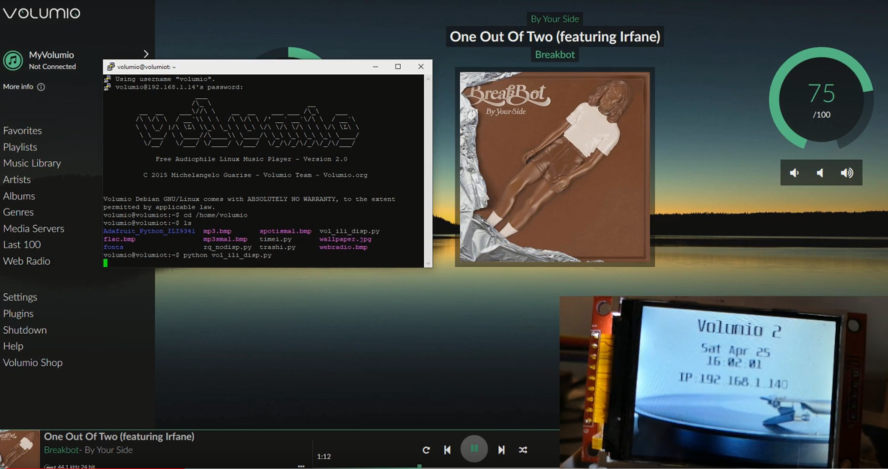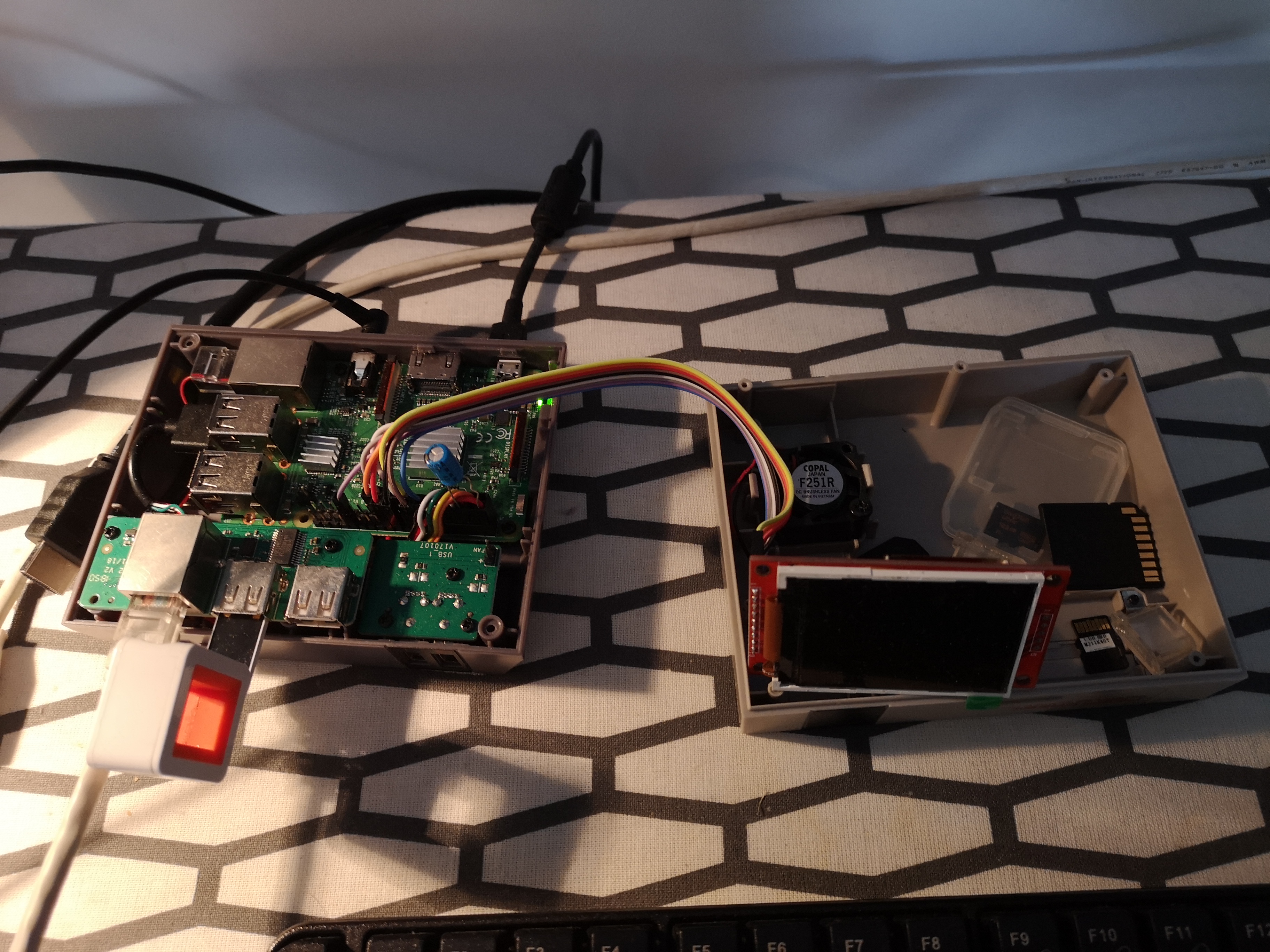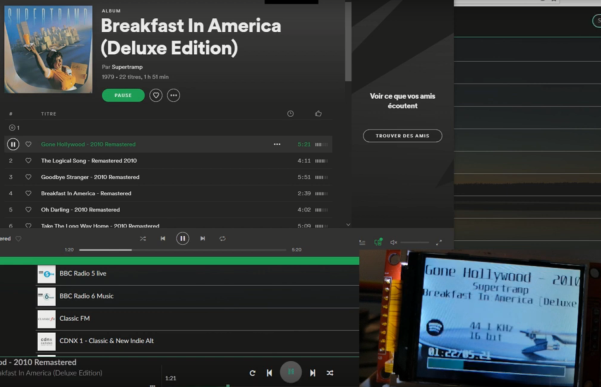Hi all,
I had this cheap 320x240 ILI9341 SPI screen laying around for a while, and I thought it would make a nice screen for a new Volumio player. After gathering information on the forum, I’ve found one thread about this kind of screen: https://forum.volumio.org/320x240-tft-control-sabre-es9023-dac-build-t2610.html .

This project was done a long time ago and some improvements needed to be done but as I’m not a programmer and python was a dark mystery to me, this guy got me started, thanks Cobblers! So I hooked up everything on my Nespi case testbench.

I’ve fixed some issues: memory leak of the adafruit library by avoiding the use of display buffer (need-example-usage-getstate-websocket-t5813.html) and not from MPD server.

Also a big deal was CPU consumption, so I’ve made two threads to improve this : the music data collection is an event based thread, and the display thread is basically an infinite loop that run at the incredible speed of 1FPS!
This is a first version on a testbench, and there are a lot of improvements to do: you can see on the video above that the IP is not rendered properly ( there is a char ‘o’ at the end of it) even if the shell script is OK. (IP is displayed properly when I make a print(IP)…)
Also this Adafruit library is outdated, a new one is available using python 3, I tried to use it but it was more CPU resource consuming, and less flexible than the old one, so weird… As a result, the max frame rate I can get using the ‘old’ library is 3FPS and it uses 50% of CPU resources which is not proper. So I was not able to make a smooth enough text scrolling when title and albums are too long for the screen.
I think if I had to start it again or if someone wanted to use such a screen, I would not recommend to use this library, instead I would use one of the notro framebuffer based library, which are sometimes tweaked up to 60FPS ( github.com/juj/fbcp-ili9341) and develop a proper GUI using Pygame or Tkinter, but hey, if I knew at that time, I would have done it differently.
Anyway, thanks again to the Volumio dev team, you’ve done an open source masterpiece!